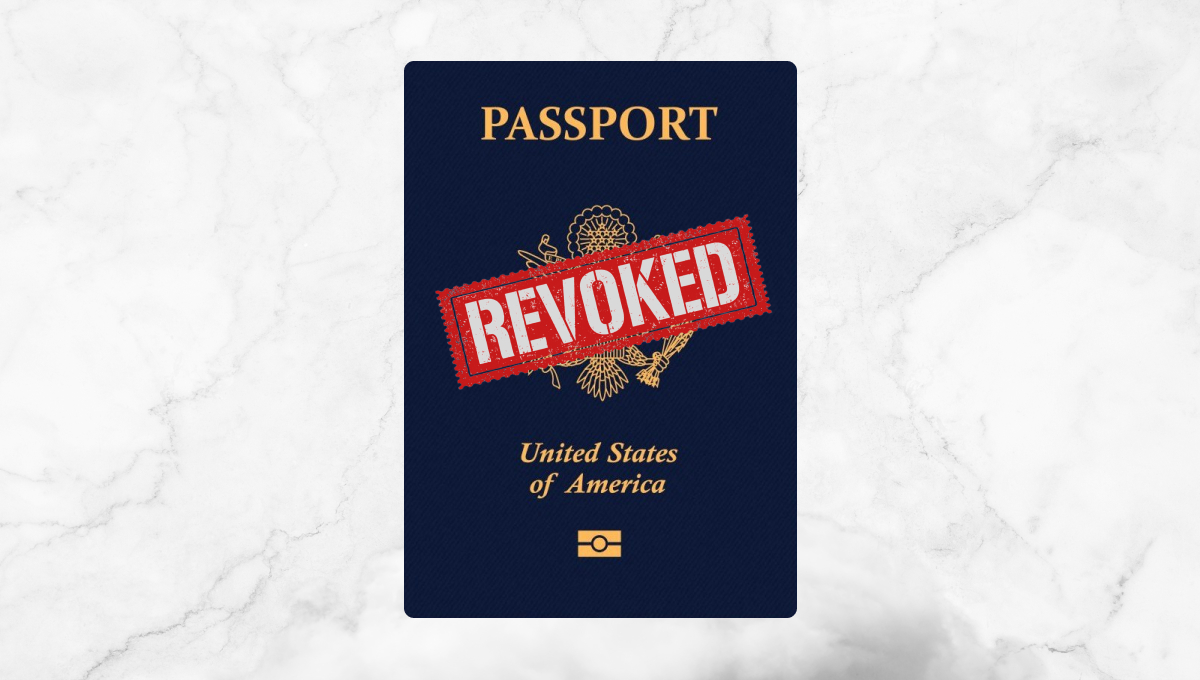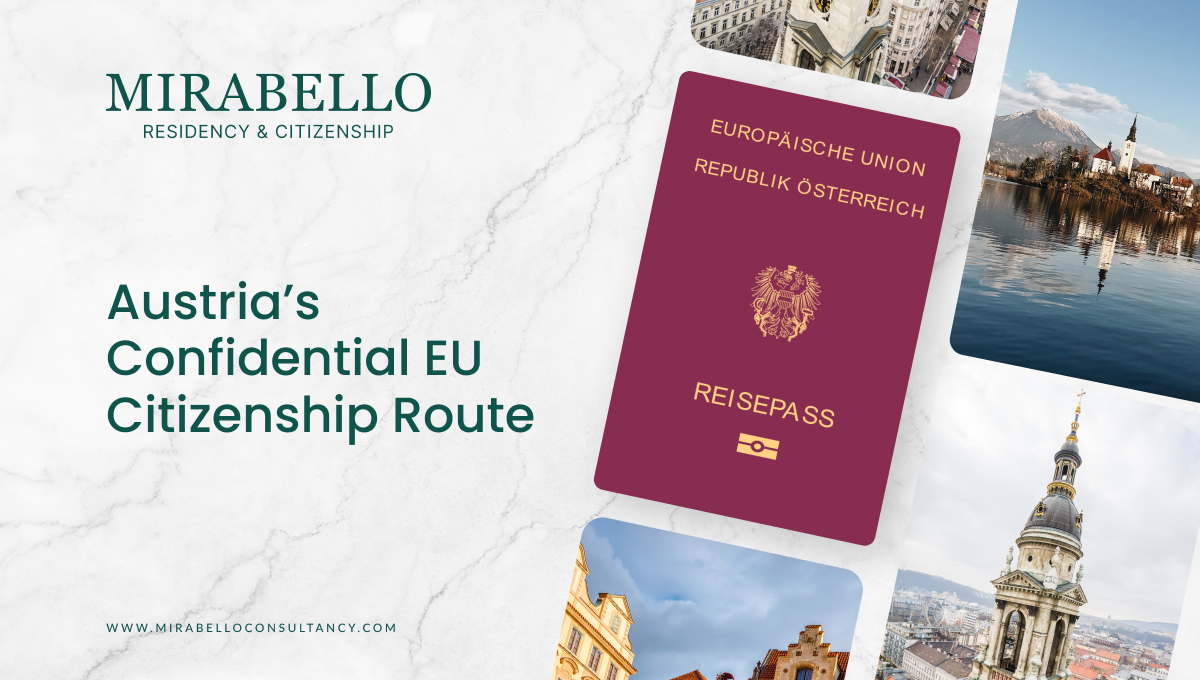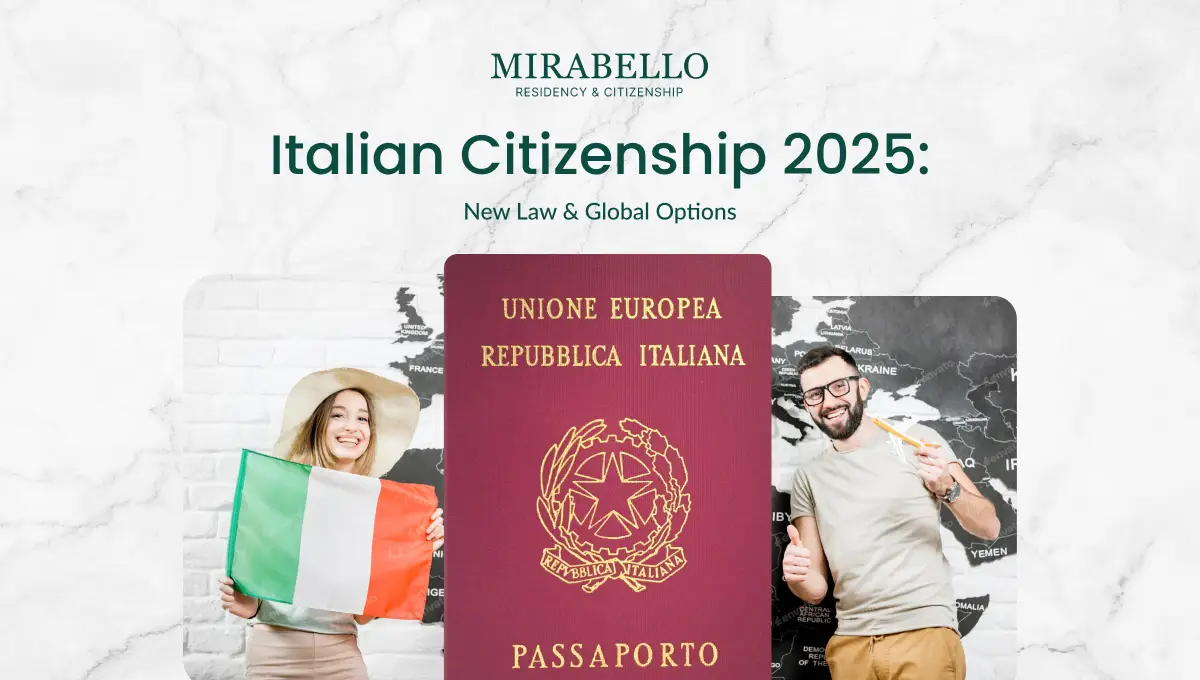
What if the U.S. government could revoke your citizenship—or deny it to your children? This is no longer a distant hypothetical. With denaturalization cases increasing and efforts to restrict birthright citizenship gaining traction, Americans face new legal uncertainties that threaten long-held assumptions about national identity and security.
Naturalized citizens, dual nationals, and even U.S.-born children are at risk due to shifting policies. In this article, we break down what’s changing, who’s at risk, and why Caribbean second citizenship has become a critical tool for protection, mobility, and peace of mind in an era of tightening immigration enforcement and constitutional ambiguity.
Key Takeaways
- The U.S. Department of Justice is actively pursuing denaturalization cases, especially against naturalized citizens.
- Proposed changes to birthright citizenship could impact children of non-citizens or temporary residents.
- Legal protections once considered permanent, like U.S. citizenship, are now vulnerable to political and judicial shifts.
- Dual nationals and expats may face increased scrutiny under evolving immigration policies.
- Caribbean second citizenship offers fast, legal, and internationally recognized protection.
- Holding multiple citizenships enhances your global mobility, legal security, and financial flexibility.
- Proactive planning is essential, waiting until a legal issue arises may limit your options.
- Mirabello Consultancy provides expert guidance to build your citizenship protection strategy with confidence.
DOJ Denaturalization Policy 2025 Explained: The New Risk to American Citizens
The U.S. Department of Justice has broadened its focus on citizenship revocation through its Office of Immigration Litigation and the Denaturalization Section. While denaturalization used to be rare, recent DOJ policy directives emphasize increased enforcement of immigration fraud and national security violations tied to past naturalization applications.
What is Denaturalization?
Denaturalization allows the federal government to revoke naturalized citizenship if it demonstrates that the individual:
- Lied or omitted material facts during the naturalization process
- Was affiliated with terrorist organizations or war crimes
- Entered the U.S. with falsified identity or documentation
Who’s at Risk?
- Individuals with unintentional errors on past immigration forms
- Those with historical legal or immigration violations
- Dual citizens or individuals with foreign military service or political ties
What Changed in 2025?
Recent DOJ updates emphasized using AI and data mining to identify inconsistencies in historical immigration records. This proactive auditing places more naturalized citizens at risk—even those who’ve held citizenship for decades.
How to Respond:
- Conduct a legal review of your immigration history
- Keep records of travel, employment, and residence history
- Consult legal experts like Mirabello Consultancy on risk and mitigation strategies
Birthright Citizenship Changes: How New Policies Could Affect Americans and Their Children
The U.S. Constitution’s 14th Amendment has long granted citizenship to “all persons born or naturalized in the United States.” However, recent federal efforts have sought to reinterpret this provision, particularly in relation to children born to non-citizens.
What’s Being Proposed?
- Executive action to limit automatic citizenship
- Legislation to narrowly define “jurisdiction”
- Legal arguments to exclude children born to undocumented or non-permanent residents
These proposals are not law yet, but they signal a real shift in how birthright citizenship may be applied in the coming years.
Who Would Be Affected?
- U.S.-born children of undocumented immigrants
- Children born to foreign diplomats or those with temporary legal status
- American expats concerned about the status of their foreign-born children
Legal Considerations:
- Any change would face immediate constitutional challenges
- The Supreme Court has never ruled in favor of restricting birthright citizenship
- Still, executive and legislative attempts can create uncertainty and delay in recognition of rights
The Legal Context: Denaturalization, Birthright, and Constitutional Challenges
Understanding the legal framework behind denaturalization and birthright changes is critical. These issues lie at the intersection of constitutional law, immigration statutes, and evolving federal enforcement policies.
Denaturalization and Constitutional Law
The U.S. Supreme Court has ruled in past cases (e.g., Fedorenko v. United States, Maslenjak v. United States) that naturalized citizenship can be revoked only if the government proves material misrepresentation during the naturalization process. However:
- There is no statute of limitations for denaturalization.
- The government can file in civil or criminal court, depending on the case.
- Once revoked, deportation typically follows unless other protections apply.
Birthright Citizenship and the 14th Amendment
The Citizenship Clause states: “All persons born…in the United States, and subject to the jurisdiction thereof, are citizens…” The key legal debate revolves around the phrase “subject to the jurisdiction.”
- Courts have consistently upheld birthright citizenship for children born to undocumented immigrants.
- Attempts to reinterpret this would likely face constitutional challenges, but may cause temporary uncertainty.
- Any restriction could have a chilling effect on families unsure of their legal standing.
Dual Citizens in Legal Limbo
Americans who hold another citizenship may face scrutiny if:
- They served in a foreign military
- They voted in a foreign election
- They obtained citizenship via investment or ancestry without notifying U.S. authorities (though this is not a violation)
Key Legal Takeaway: U.S. citizenship is not automatically irrevocable, but it is not untouchable either. Legal ambiguity and shifting political priorities mean risk exposure is rising.
Why Second Citizenship in the Caribbean Is a Smart Legal Shield for Americans
For Americans seeking a legal and practical safeguard, Caribbean second citizenship offers an efficient and internationally recognized solution. Through government-approved Citizenship by Investment (CBI) programs, individuals can obtain a second passport in exchange for an investment in the host country.
Why the Caribbean?
- Political neutrality: These countries do not get involved in U.S. domestic enforcement.
- No residency requirements: Citizenship can be obtained remotely.
- Legal recognition: Caribbean CBI programs are fully codified and protected by law.
- Speed: Some nations process applications in 90–120 days.
Top CBI Programs for Americans:
- Dominica: Affordable with a strong due diligence process
- St. Kitts & Nevis: Longest-running program, known for speed
- Antigua & Barbuda: Offers family-friendly packages
- Grenada: Treaty benefits with the U.S., including E-2 visa eligibility
Multiple Citizenship Benefits in an Age of Political and Legal Uncertainty
As the U.S. tightens its immigration and naturalization oversight, holding multiple citizenships has gone from luxury to necessity. For globally mobile professionals, investors, and families, second citizenship functions as a strategic financial and legal shield.
Why Multiple Citizenships Matter
- Freedom of movement: Access more countries without visas
- Legal fallback: In the event of U.S. denaturalization, retain rights and protections elsewhere.
- Estate planning: Secure generational wealth transfer through favorable tax laws
- Global business: Open companies, bank accounts, or invest abroad more easily
Practical Benefits for Americans
- Maintain a second home base in politically neutral territory
- Navigate visa restrictions or travel bans with another passport
- Gain access to tax incentives or business opportunities in other jurisdictions
- Ensure that dependents can study, live, or work in alternate countries
What to Consider Before Applying
- Choose jurisdictions with stable legal systems and international respect
- Ensure programs offer full citizenship, not long-term residence only
- Work with advisors who understand U.S. reporting and compliance obligations
Dual or multiple citizenships don’t conflict with U.S. law unless obtained through fraudulent means. In fact, they’re increasingly viewed as wise tools for individuals who want to ensure security for themselves and their families—legally, financially, and personally.
How to Protect Against US Citizenship Revocation: A Practical Strategy Guide
In today’s legal climate, waiting for policies to become law is no longer a safe strategy. Americans, especially naturalized citizens, expats, and globally active professionals, should proactively protect their legal status through citizenship protection strategies.
Step-by-Step Protection Strategy
Step 1:Assess Your Citizenship Risk
- Were you naturalized?
- Was your immigration process complex or handled poorly?
- Do you hold another citizenship or conduct international business?
Step 2: Conduct a comprehensive review of your naturalization and immigration records to ensure they are free from discrepancies or errors.
- Audit naturalization documents for accuracy
- Gather all travel, tax, and employment records
- Work with an immigration attorney for a legal compliance review
Step 3: Consider a Second Citizenship
- Not as an escape plan, but as legal insurance
- Choose programs that offer strong legal standing, not just convenience
Step 4: Maintain U.S. Compliance
- File tax returns (even if living abroad)
- Disclose foreign assets under FATCA and FBAR rules
- Stay aware of shifting policy to avoid unintended violations
Why Act Now?
- Citizenship revocation cases are increasing
- Legal defenses are limited after proceedings begin
- Caribbean second citizenship programs offer a timely, reliable, and strategic solution, applying now ensures your protection before legal changes take effect.
Conclusion:
The DOJ’s expanded denaturalization policies and emerging proposals to reinterpret birthright citizenship mark a pivotal shift in U.S. immigration enforcement. With AI-driven record audits and heightened scrutiny on both naturalized and dual citizens, the risk of losing American citizenship is no longer remote—it’s a growing reality. Legal uncertainty, political agendas, and decades-old immigration records are now part of the equation for many Americans.
In this climate, proactive citizenship protection is essential. Securing a second passport—particularly through stable Caribbean Citizenship by Investment programs—offers Americans a legal and practical safeguard. Beyond mobility and business benefits, it ensures an alternative legal identity and jurisdiction, protecting your family, assets, and future in the face of shifting U.S. policies.
FAQ
Fraud during naturalization, national security concerns, or voluntarily renouncing it at a U.S. embassy.
Over 40,000 since 1998; around 1,000–2,000 renounce each quarter.
Yes, but only with a valid visa or green card.
To avoid tax obligations, simplify compliance, and gain financial or travel freedom.
It asks if you’ve formally given up your citizenship through a legal process.





